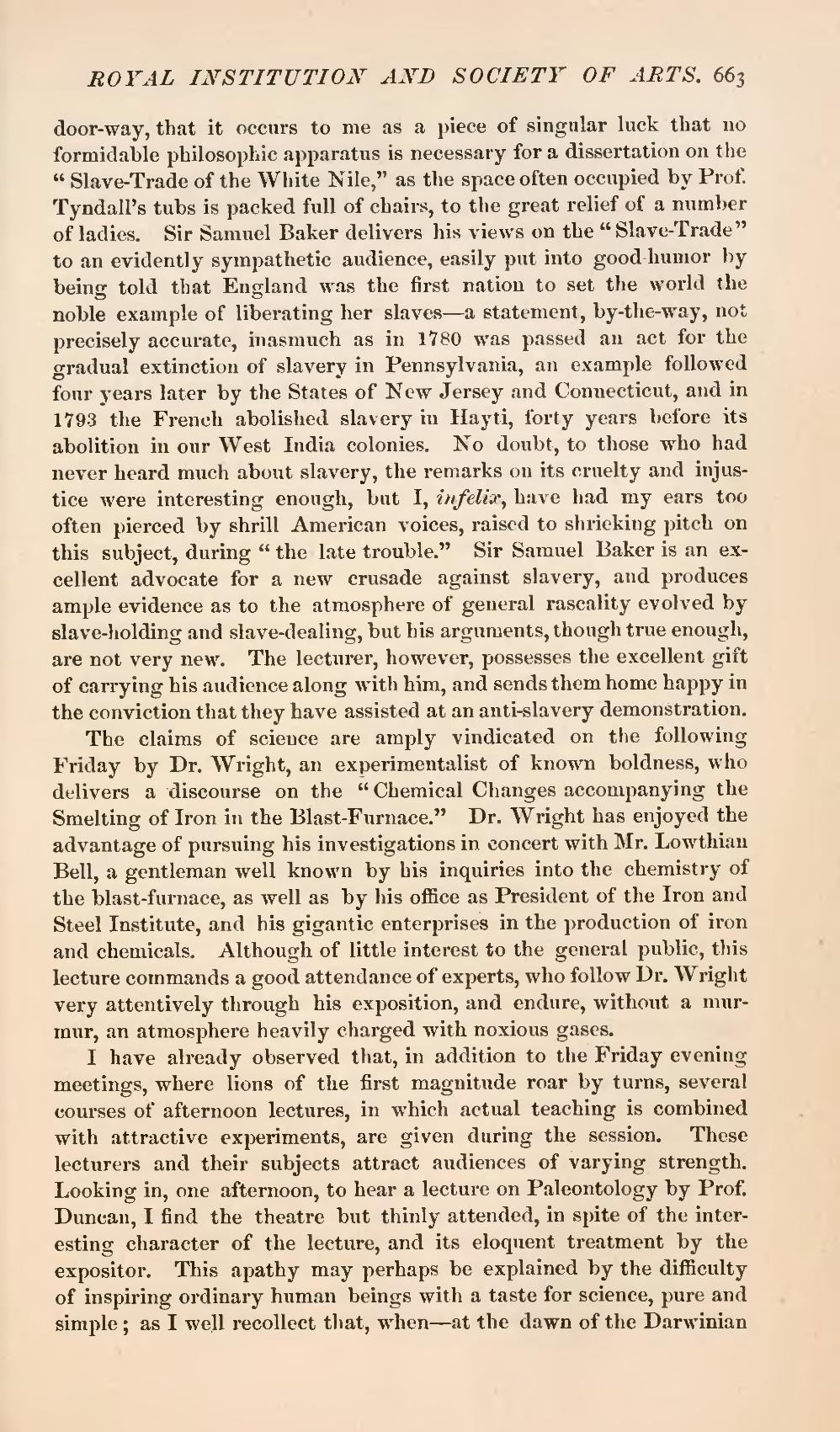door-way, that it occurs to me as a piece of singular luck that no formidable philosophic apparatus is necessary for a dissertation on the "Slave-Trade of the White Nile," as the space often occupied by Prof. Tyndall's tubs is packed full of chairs, to the great relief of a number of ladies. Sir Samuel Baker delivers his views on the "Slave-Trade" to an evidently sympathetic audience, easily put into good-humor by being told that England was the first nation to set the world the noble example of liberating her slaves—a statement, by-the-way, not precisely accurate, inasmuch as in 1780 was passed an act for the gradual extinction of slavery in Pennsylvania, an example followed four years later by the States of New Jersey and Connecticut, and in 1793 the French abolished slavery in Hayti, forty years before its abolition in our West India colonies. No doubt, to those who had never heard much about slavery, the remarks on its cruelty and injustice were interesting enough, but I, infelix, have had my ears too often pierced by shrill American voices, raised to shrieking pitch on this subject, during "the late trouble." Sir Samuel Baker is an excellent advocate for a new crusade against slavery, and produces ample evidence as to the atmosphere of general rascality evolved by slave-holding and slave-dealing, but his arguments, though true enough, are not very new. The lecturer, however, possesses the excellent gift of carrying his audience along with him, and sends them home happy in the conviction that they have assisted at an anti-slavery demonstration.
The claims of science are amply vindicated on the following Friday by Dr. Wright, an experimentalist of known boldness, who delivers a discourse on the "Chemical Changes accompanying the Smelting of Iron in the Blast-Furnace." Dr. Wright has enjoyed the advantage of pursuing his investigations in concert with Mr. Lowthian Bell, a gentleman well known by his inquiries into the chemistry of the blast-furnace, as well as by his office as President of the Iron and Steel Institute, and his gigantic enterprises in the production of iron and chemicals. Although of little interest to the general public, this lecture commands a good attendance of experts, who follow Dr. Wright very attentively through his exposition, and endure, without a murmur, an atmosphere heavily charged with noxious gases.
I have already observed that, in addition to the Friday evening meetings, where lions of the first magnitude roar by turns, several courses of afternoon lectures, in which actual teaching is combined with attractive experiments, are given during the session. These lecturers and their subjects attract audiences of varying strength. Looking in, one afternoon, to hear a lecture on Paleontology by Prof. Duncan, I find the theatre but thinly attended, in spite of the interesting character of the lecture, and its eloquent treatment by the expositor. This apathy may perhaps be explained by the difficulty of inspiring ordinary human beings with a taste for science, pure and simple; as I well recollect that, when—at the dawn of the Darwinian

